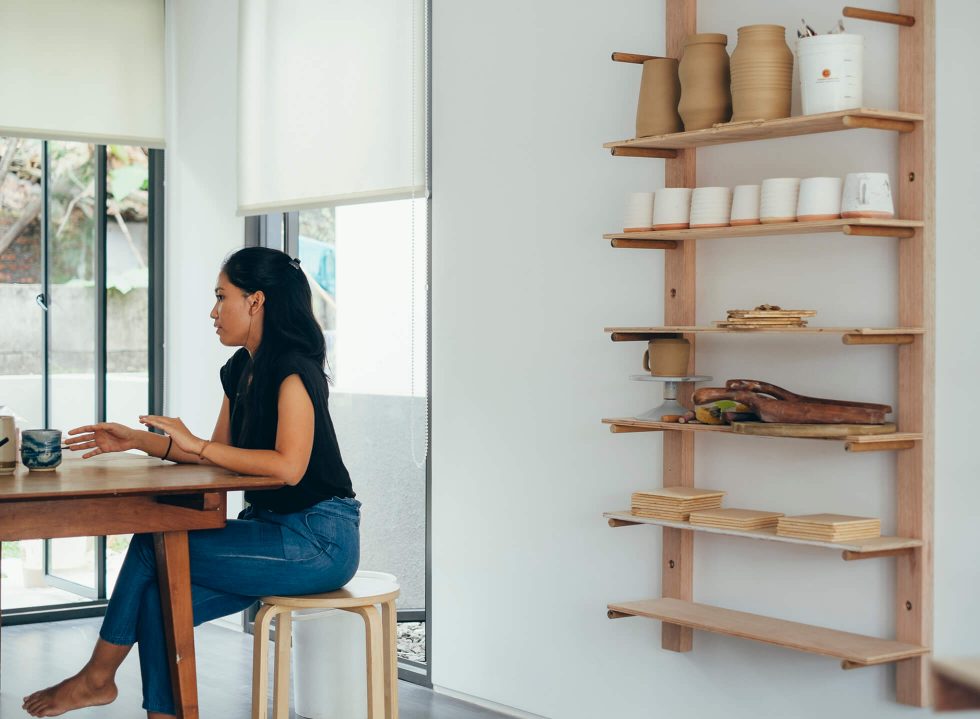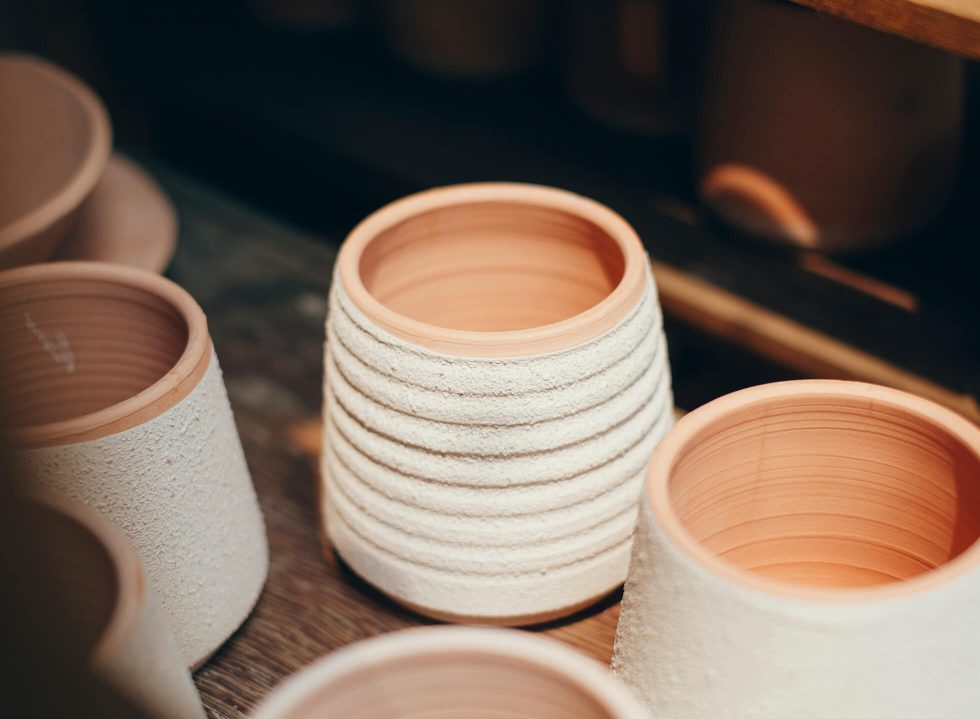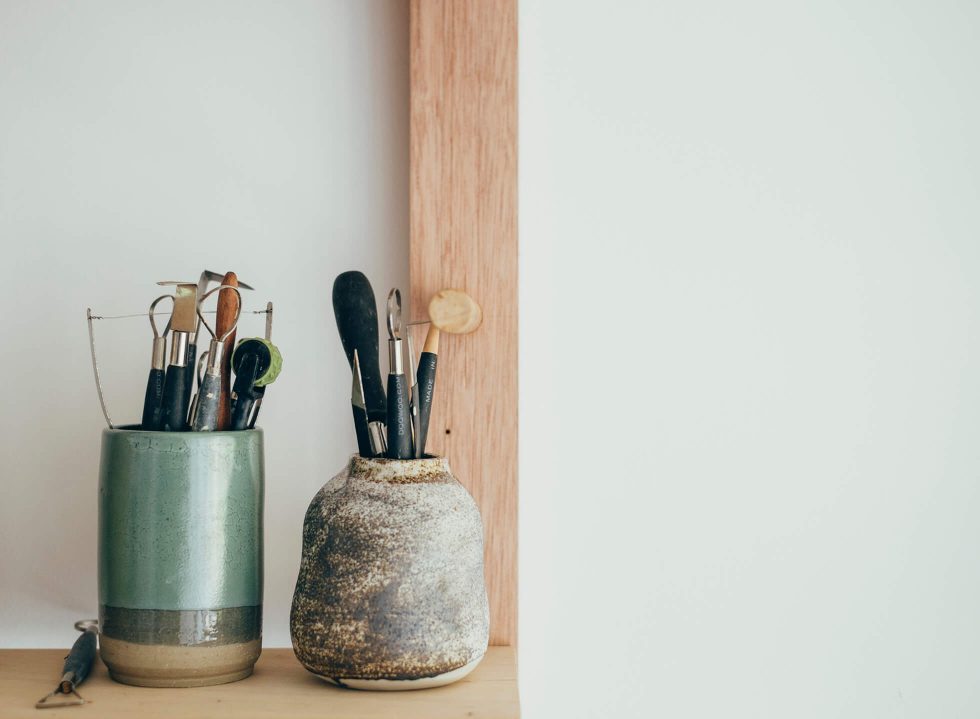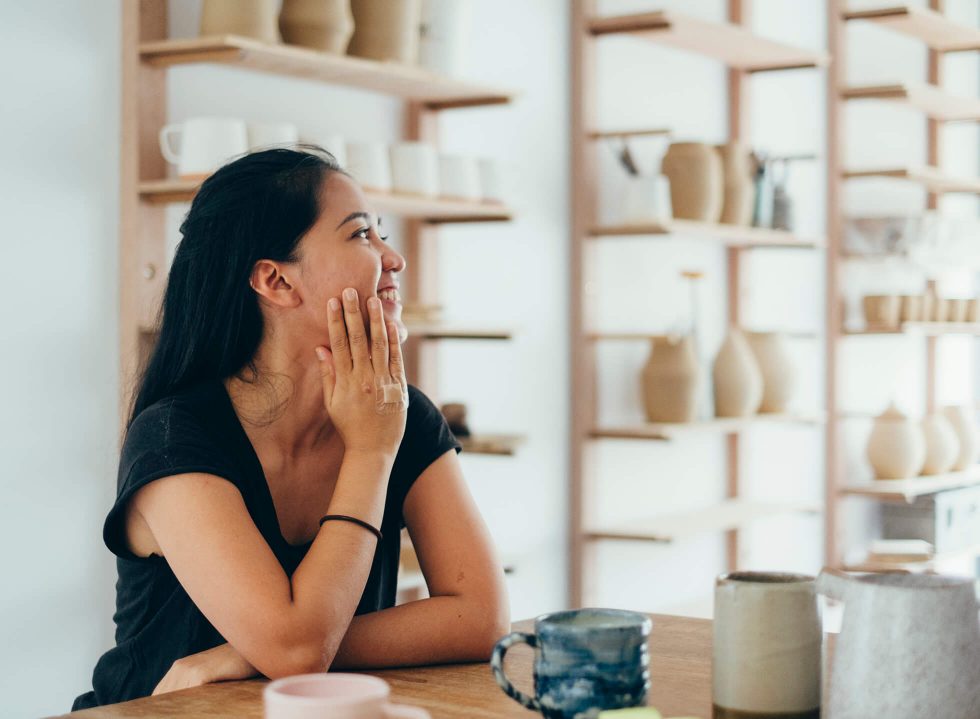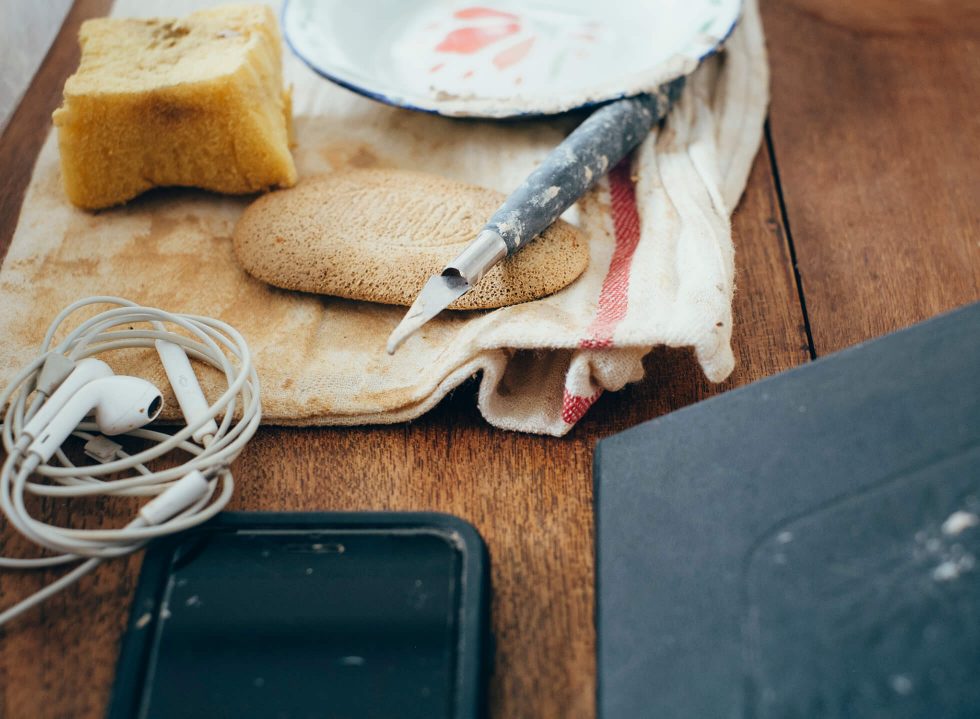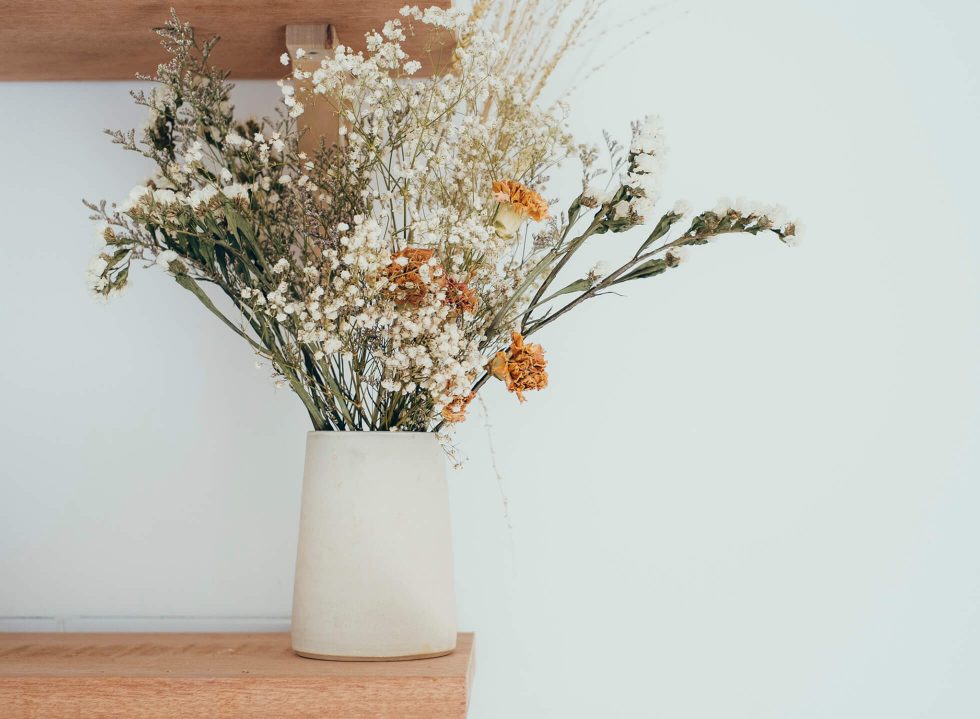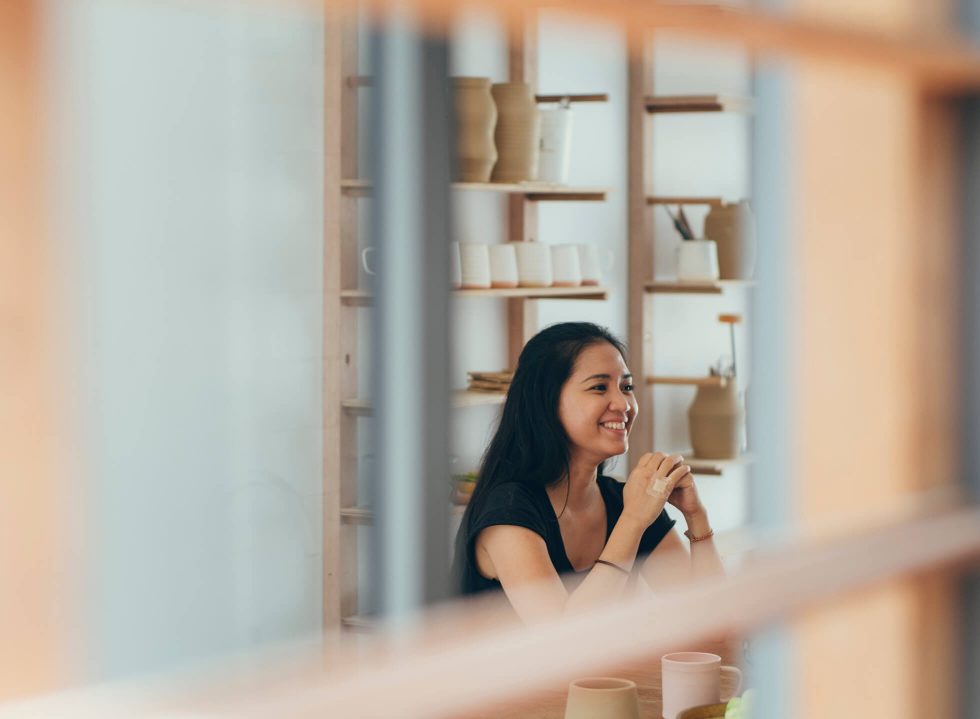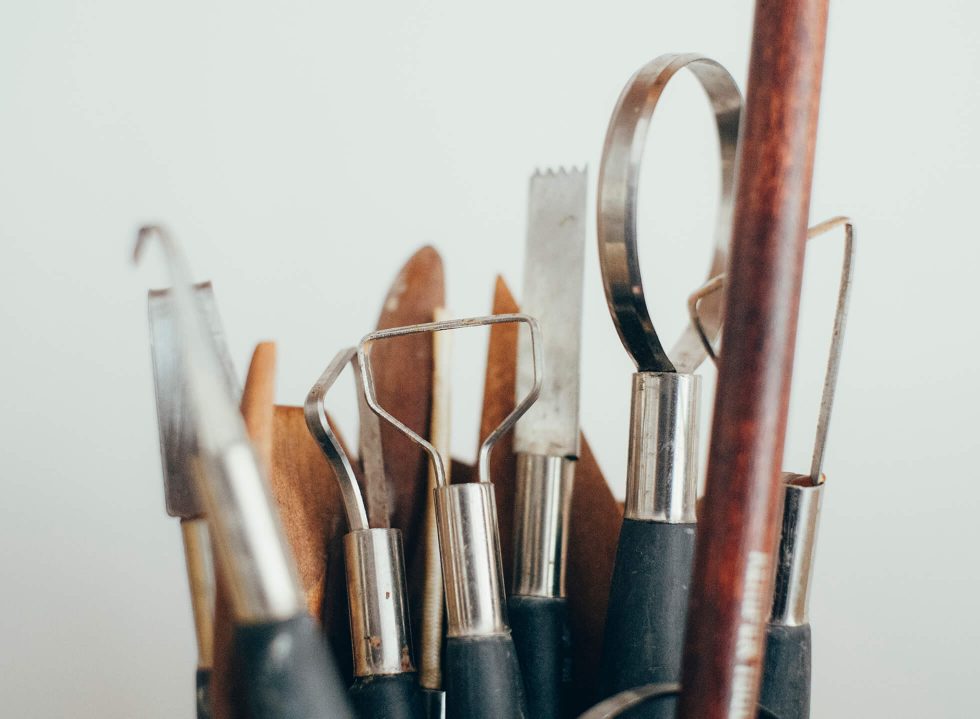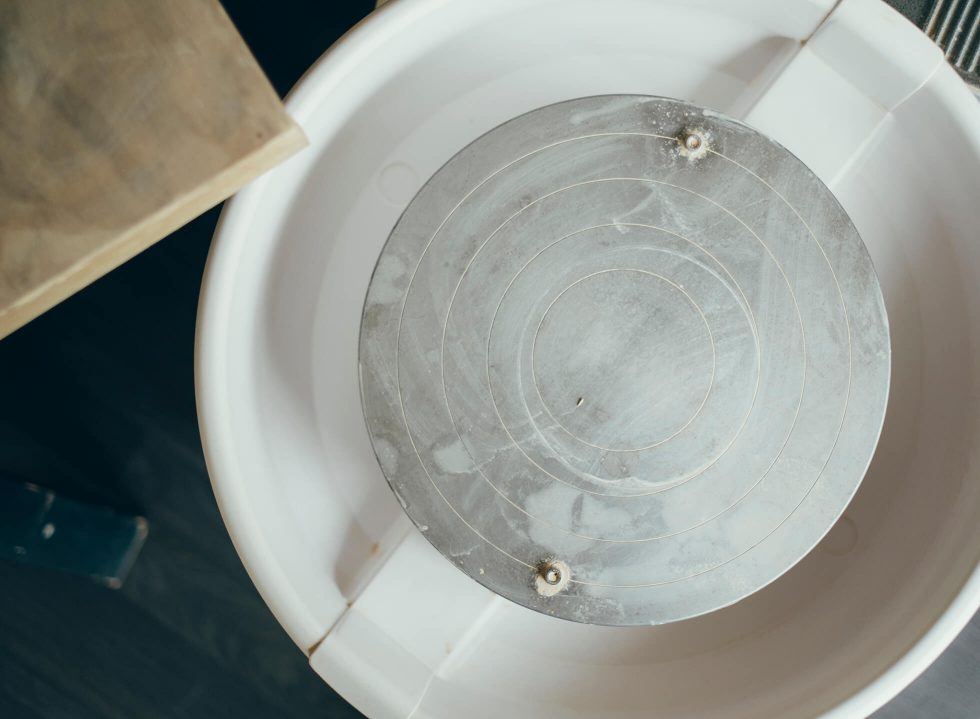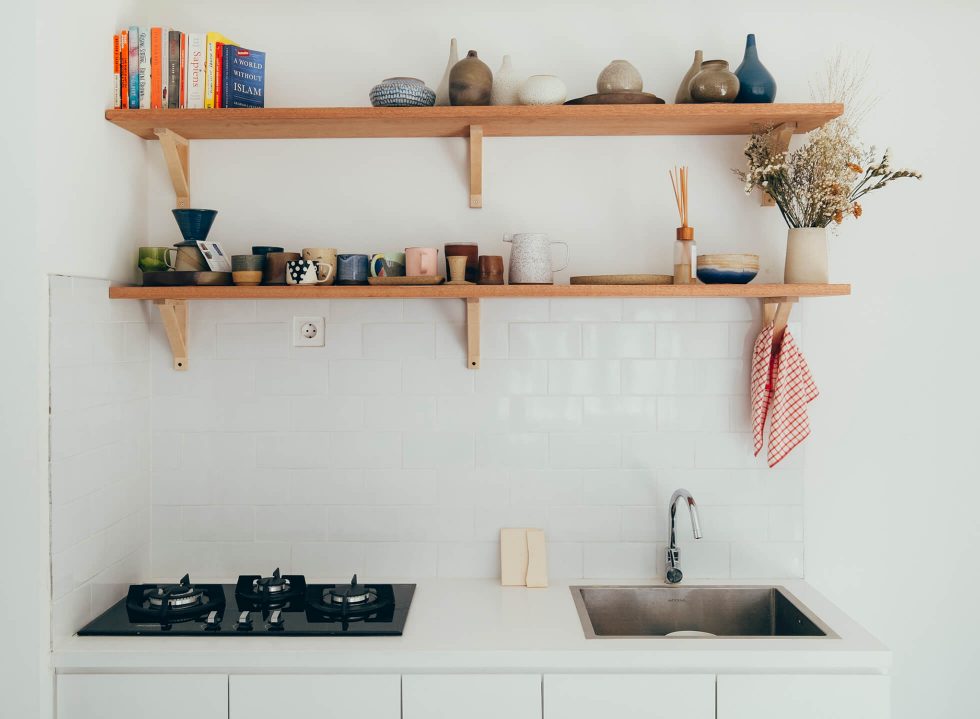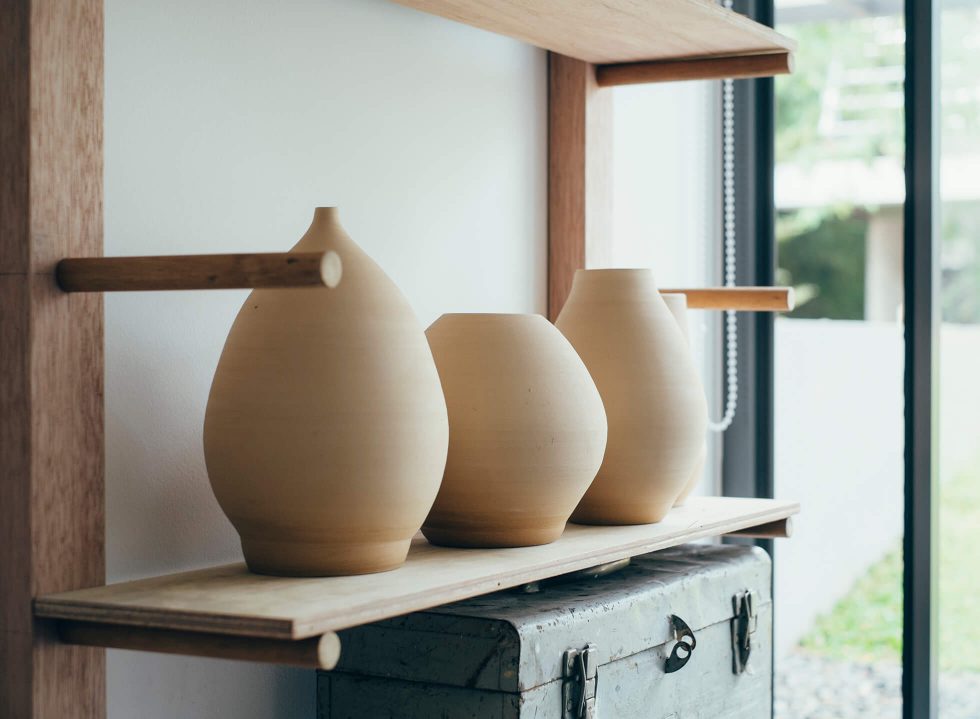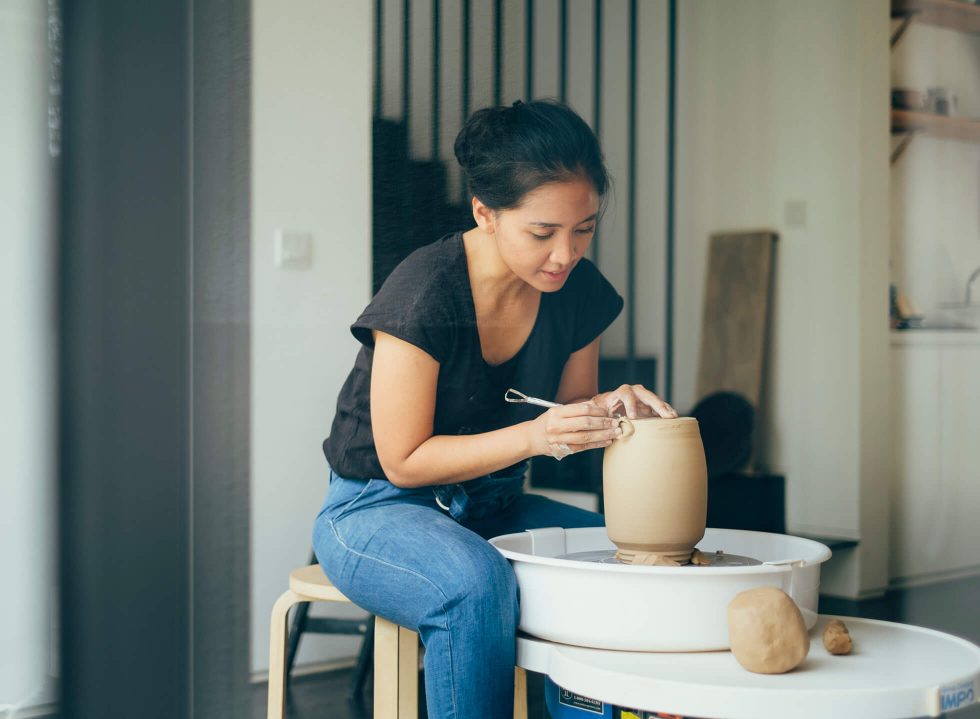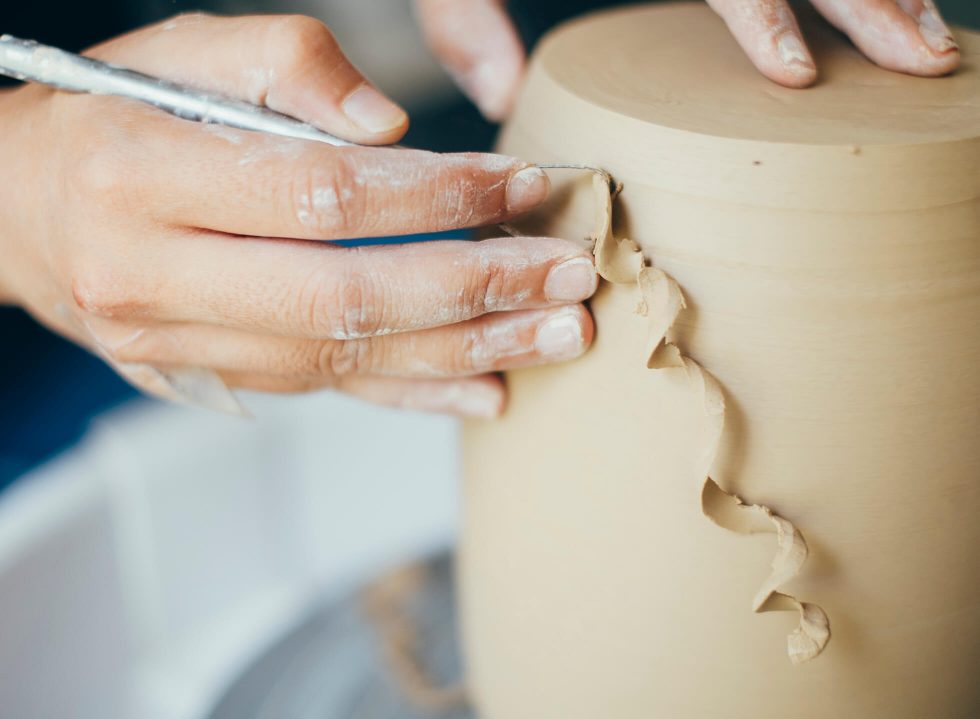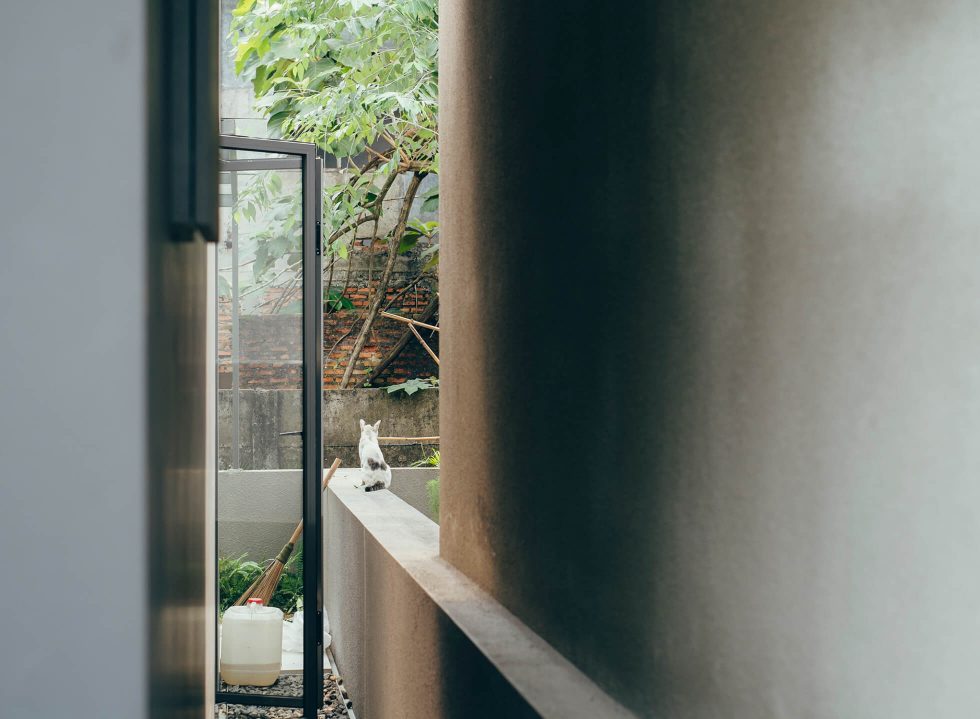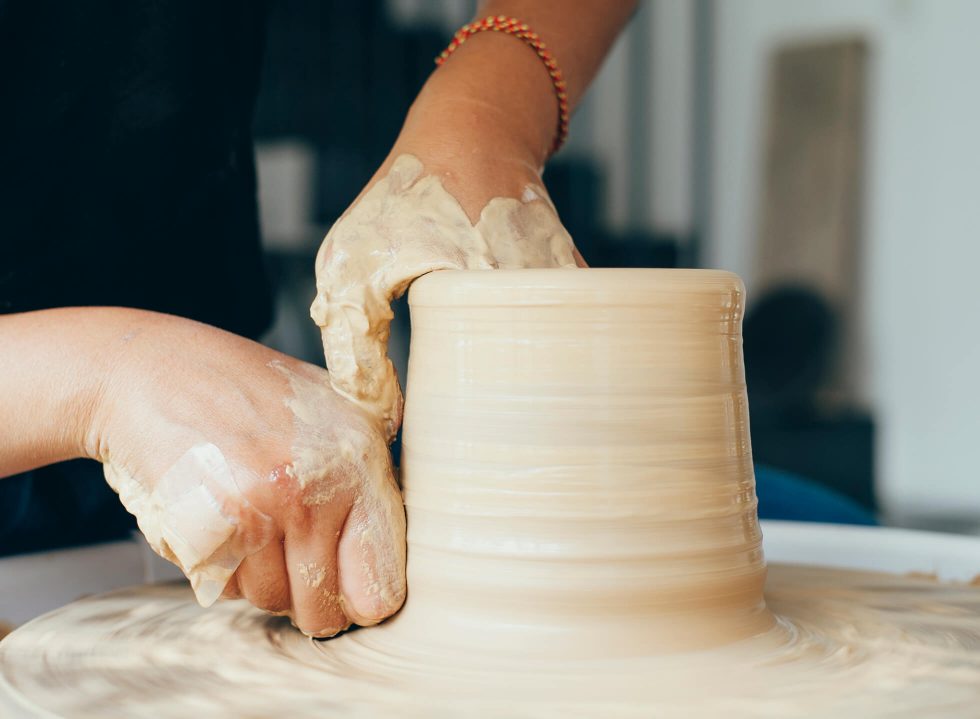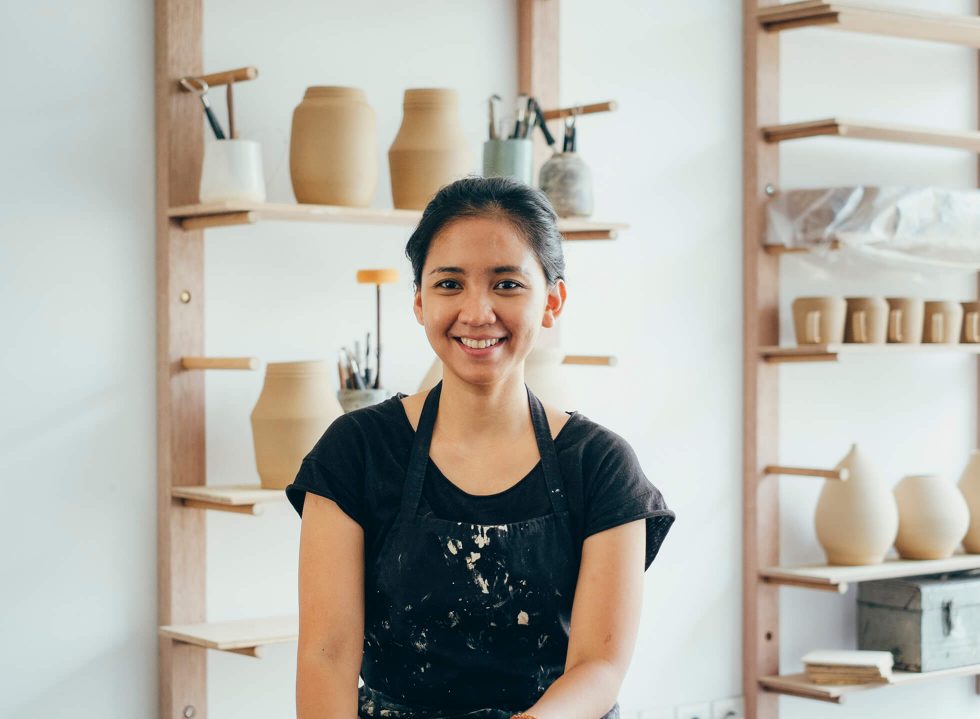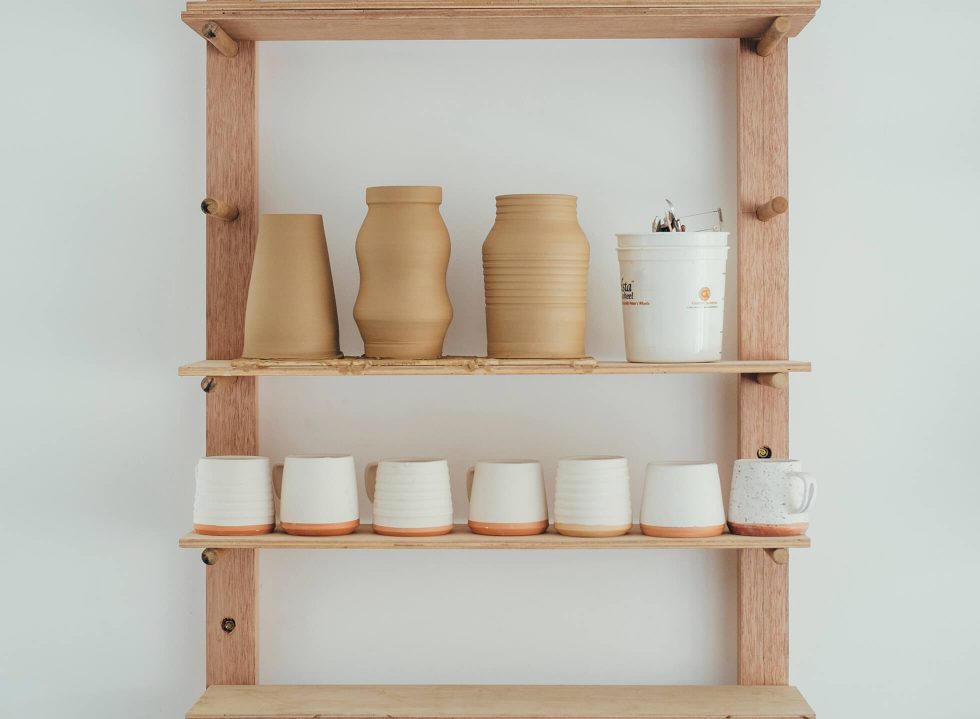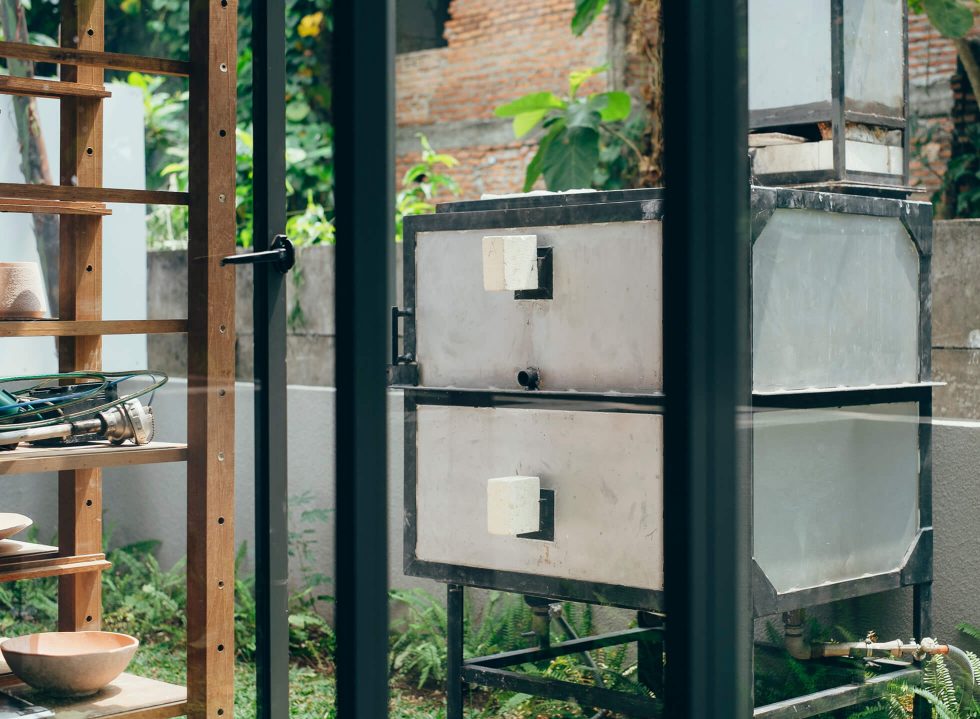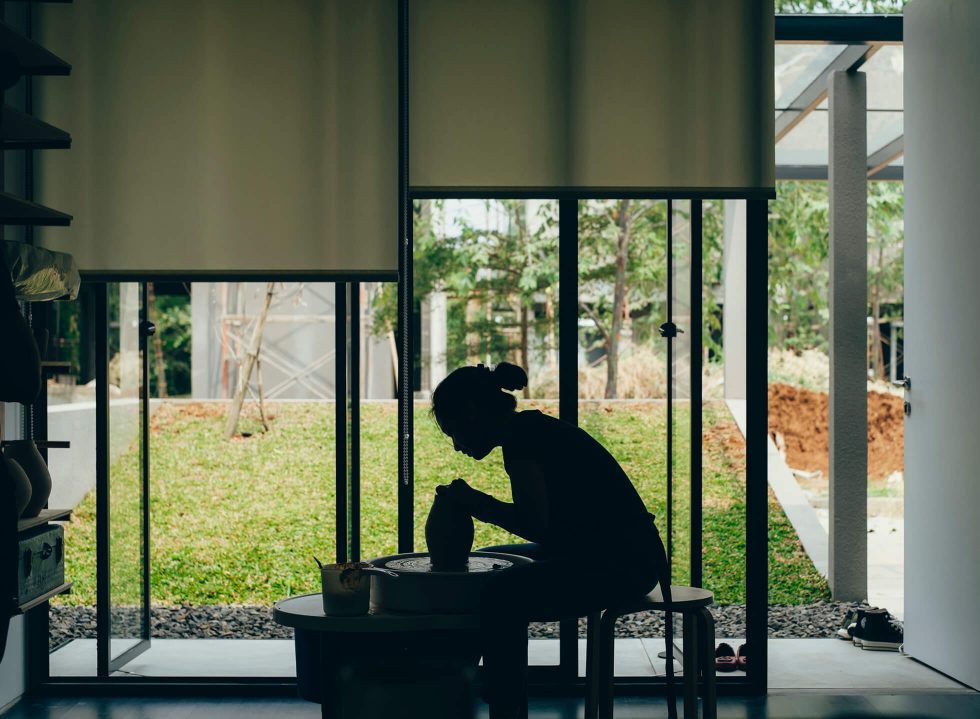Travelling to the studio of local ceramicist Ayu Larasati is a cathartic experience itself. First, you’re taken aback by how far it is. The studio is located further down south, out of Jakarta, in the outskirts of Depok. After escaping the gridlock of the capital city, the road gets more and more tapered. Soon, road morphs into narrow street, tall buildings vanish and modest residential houses proliferate. And if you’re lucky, you’ll be greeted with a handful of cows chewing lazily on the empty field opposite the contemporary and minimalist housing complex where the studio resides.
“It’s not completely done yet. I’m hoping that in the future we can have an open studio type of space where people can do ceramics with different techniques. Not just wheel throwing, but also hand building and glazing at the back,” she says, scanning the light-filled studio. “A bit of everything.”
“I feel that pottery actually offers an escape from frustrations.”
Ayu certainly didn’t mean to troll her students who reside in Jakarta by setting her studio all the way in Depok. In a way, the considerable travel time feels like a mandatory preliminary exercise before getting to work on the ceramic. The act of throwing wheel and shaping a lump of formless clay into a desired piece of object, whether decorative or functional, requires more than just the luxury of time. It’s certainly not an exaggeration to claim that ceramic workshop demands patience and a composed piece of mind.
In a city like Jakarta, where the lives of working class are inundated with busy career and personal responsibilities, all while getting stuck in traffic in between, it’s a surprise that pottery would even take hold among Jakartans. To create, say, a simple ceramic cup requires a labourious process. First, one would need to shape them on throwing wheel (“They provide more precise result compared to kick wheel”), making sure to get rid of air bubbles and impurities. Then comes the firing part, where the piece is placed in a carefully controlled “heated box” to completely remove moisture from the clay before glazing it to seal off its porous surface.
“I feel that pottery actually offers an escape from frustrations. For me, there are two types of groups that attend my workshop. One is a group of people who are curious about pottery and just want to try it out. While the other group is very serious, they even got their own wheels and return to pass their pieces for me to fire,” she explains. Sitting between us are a pitcher of water and cups, all creations of Ayu herself that I can’t help but to steal a few glances at every now and then.
“I thought to myself, ‘I can actually earn a living from this, instead of just a hobby.’”
Like almost every individual who is good at his or her respective craft, Ayu fell into her profession by chance during her study in Canada. “I was in an Industrial Design course and at the second year, I happened to design a bowl and I’d go to the ceramic studio and made it myself,” she recalls. Although she has no obligation to carry on with the craft after graduation, she continued to hone her skills by taking up night classes and gift her creations to friends during festive holidays.
Even after returning to Jakarta in 2014, her bond to pottery remains. During a visit at Indoestri Makerspace, the owner, Leonard Theosabrata offered her a space to conduct ceramic workshop. “I think it was a really good timing. Also, having a studio, where I can create stuff and not just pass them to artisans, really encouraged me. I thought to myself, ‘I can actually earn a living from this, instead of just a hobby.’”
What started off as a side project soon takes root as the name Ayu Larasati began to gradually represent good quality ceramic homeware among enlightened Jakartans, even when the reason is hard to pinpoint. I once asked my colleague, Pingkan Palilingan, a proud owner of a ceramic cup that often accommodates her hot beverage in the office, on what exactly draws her to Ayu’s. “Honestly, I can’t really pinpoint why. But after all these years, even when there are plenty of options from other brands, I still gravitate towards Ayu’s pieces,” said Pingkan.
The exact explanation may elude some but pick up a piece of ceramic homeware from Ayu Larasati (a sand-coloured mug, a plate with gorgeous white strokes or a vase resembling a spinning top in calming shade of blue) and you can tell by its texture and heft, neither too light nor heavy and it’s always just right, that it’s a quality piece you’re holding. Even if you’re only planning to use it as a piece of decoration, as opposed to its intended function, it works perfectly fine too. And perhaps, there lies the often-unexplainable part: the good-looking pieces offer similar therapeutic effects to, say, observing koi fishes circling in their pond.
“Just like pottery, in a sense like, just surrender yourself to the process.”
Of course such romantic way of perceiving her work could easily lead to a stereotypical impression of Ayu herself: a zen ceramicist who’s got everything in her life under control. Where in fact, her daily routine is hectic and doesn’t differ that much from every working mom out there.
As a mother to two children, her schedule goes as such, “I wake up, send my kids to school and come here [to the studio]. Then I’d leave again at around 2pm to pick up my kids and do homework with them in the afternoon.” But that only applies on the good days. When deadline approaches, “I’ll return to the studio at night. That’s why there’s a bed upstairs,” she laughs.
As the nature of her work requires a great deal of concentration and patience, coupled with the pressure of meeting order deadlines (Ayu has supplied for a couple of noted F&B establishment like Mister Sunday and Crematology), she confesses that she is prone to stress too, as ironic as that sounds.
“I just took up meditation recently. It helps me to focus, but another thing that I learn is impermanence. If you experience something good in life, just enjoy it as it is. Same for sadness, don’t push them away, accept it. Just like pottery, in a sense like, just surrender yourself to the process,” she muses.
It’s lunchtime now and the surrounding of the studio is getting even more serene. Ayu gets up to show me where she fires her pieces at the backyard, the room where she stores the clay before offering to demonstrate making a vase on the throwing wheel.
While waiting for my ride to arrive, our conversation bounces back and forth in different directions. From her small team of three, including an admin, Andriani (“She does the shipping”) and another craftsman, Kang Dedi (“Firing usually takes twelve hours, so Kang Dedi and I take shift”), her pop-up store, Unearth at One Fifteenth (Gandaria) with Canaan Bali to listening to podcasts while working.
As her studio gradually vanish from the rear-view mirror, the thought of Ayu returning to her work: the silhouette of her stationary figure shaping clay quietly, accompanied by nothing but her own thoughts and the soft whir of the throwing wheel, provides a strange comfort as the car slowly makes its way into the manic capital city.
